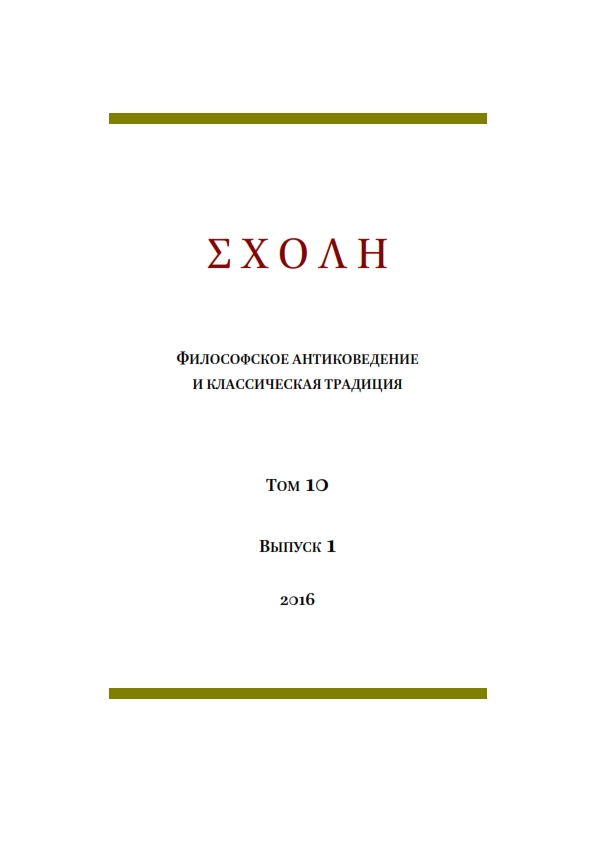НЕОПЛАТОНИЧЕСКИЙ АСКЛЕПИЙ
THE NEOPLATONIC ASCLEPIUS
Author(s): Anna Afonasina, Eugene AfonasinSubject(s): Customs / Folklore, Metaphysics, Ancient Philosphy, Cultural Anthropology / Ethnology, Health and medicine and law
Published by: Новосибирский государственный университет
Keywords: Athena; Asclepius; Damascius; Julian; the House of Proclus; blood sacrifice; healing;
Summary/Abstract: In general, Proclus had intimate relations with gods, but Asclepius seems to assist him all his life: the young Proclus miraculously recovered when the son of Asclepius, Telesphorus, appeared to him in a dream; in a more advanced age the patron of medicine saved him again, this time from arthritis; and it was Asclepius who appeared to him as a serpent “in his final illness” (Vita Procli 7 and 31). The philosopher speaks about a vision of Asclepius in his Commentary to Alcibiades 166. Besides, he was probably involved in the process of establishing an Asclepian cult in his home country. It is against this background that one may look at the Neoplatonic attitude to medicine. Having discussed first the principal philosophical interpretations of Asclepius found in Apuleus, Aelianus, Macrobius, Julian, Porphyry, Iamblichus, Proclus, Damascius, etc., we turn to Proclus’ attitude to Athena and Asclepius as reflected in Marinus’ Vita Procli and then discuss the figure of Eshmun as found in Damascius. The textual data are supported by arheological evidence from the “House of Proclus” in Athens.
Journal: ΣΧΟΛΗ. Философское антиковедение и классическая традиция
- Issue Year: X/2016
- Issue No: 1
- Page Range: 260-280
- Page Count: 21
- Language: Russian

